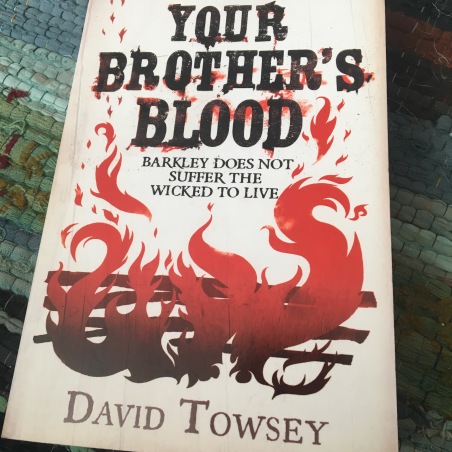I’ve been really feeling I need to read something that isn’t weird and wonderful lately. Literature is a wonderful buffet and I have a tendency to pick at what is already comfortable to my palate. I read Mitchell’s Cloud Atlas a few years ago and thought it revealed a lot about Mitchell as an author attempting something dynamic and different within his novels. Slade House is again an unusual read and I prefer it to Cloud Atlas as it is sophisticated but retains an air of engaging simplicity.
Unfortunately this novel doesn’t really fit the bill of not being weird and wonderful. Slade House is one of those novels that really enjoys itself and goes to great lengths to keep itself believable and interesting. It is the moreish minted pea dip, or the good beetroot humus at the buffet table that you can’t keep your fingers or breadsticks out of. It’s a little bit ghosty, there’s a bit of soul-thievery, there’s a little bit of reality bending, there are some creepy twins and you know, that staircase. That staircase you see in every horror film that you should never run up no matter who or what is chasing you through the house.
But even though it has that staircase and a slight Amityville Horror feel to it, I didn’t find it terrifying because I believe Slade House aims for enjoyable-creepy and that vending machine of horror tropes that are stirred in with hilarity and cultural nods. Honestly all that is missing from this novel are small children staring blankly and bleeding walls. Slade House uses tropes very well and seems to make them a little fresher or to hum to a new beat. It was a difficult book to put down and perhaps that is because it is very different to some of the things I have read lately but it is very well written and a joy to read.
The novel is built on 5 short stories staggered in 9 year intervals. Each short story has Slade House itself at the epicentre somehow, a woman and her son invited to the house, a group of paranormal nut teenagers stumble into finding it, a police officer finding it by chance during his investigation for example. But each time the discoverers of the house find themselves at the mercy of the occupants, twins Norah and Jonah Grayer, and they disappear without a trace.
Norah and Jonah Grayer are the only two characters that feature throughout the novel in a big way. They are a little like the archetypal bad-guys, they just want to live forever and party around the world, but they have to commit to a ritual on the same day once every 9 years to do it. To begin with they seem a little like menacing caricatures, and had this novel been formulaic in its method of capturing innocent people they would have remained so. But Mitchell gives the twins some diversity once you have a handle on what is going on in this novel.
I feel as if Mitchell’s timing is handled really well in this novel, he never reveals too much to give the game away but keeps the reader interested until the last page. Particularly with the way he handles his characters. Mitchell seems to have really nailed down the separate voices of Slade House, but he does work with familiar characters that you have seen hundreds of times in other novels. The odd Nathan Bishop who is aware he is peculiar thanks to his highly strung newly divorced mother who is broke, timid Sally Timms who is has a desperate crush on her friend, and the rough around the edges cop, Gordon Edmonds are all brilliant examples of this.
These characters are so easily found that perhaps Mitchell has banked on a lot of the characterisation being done for him as they are familiar faces. I have met Nathan Bishop at least twice recently. They may be easy characters to pull out of a writer’s toolbox but Mitchell doesn’t make them seem cliche or boring. They are also really easy to summarise into sentences which I’ve done below just for fun:
Nathan takes his highly strung mother’s valium because he believes it makes him act more appropriately. Sally is riddled with self loathing and is terribly jealous of her older sister and her insecurity has made her shy about approaching her crush. Gordon is racist, divorced, brow beaten and presumably henpecked from his previous marriage.
Running throughout Slade House is the investigation into the disappearance of the Bishops and other characters in a who-dun-it style. The reader knows who the culprits are and the curiosity of the novel is how or if, the other characters of the novel will find out. Of course there is also mystery around Norah and Jonah and the truth of what Slade House is.
This is a great novel and difficult to put down and extremely surprising. I was not expecting to enjoy this as much as I did or it to be this novel. I highly recommend it if you’re feeling your to-read pile is getting a little like the same plate over and over from the literature buffet.


